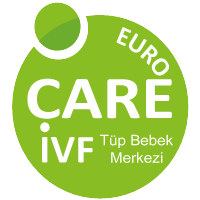euroCARE IVF creates loving families by providing advanced fertility services to intended parents who are struggling with infertility. By implementing modernized treatments such as, In-Vitro Fertilization (IVF), donor programs, andrology, and fertility research, the euroCARE IVF team helps future moms and dads to hold on to their dreams of parenthood.
 As of July 2016, Preimplantation Genetic Diagnosis (PGD) cannot be used for choosing the desired sex of your baby in North Cyprus.
As of July 2016, Preimplantation Genetic Diagnosis (PGD) cannot be used for choosing the desired sex of your baby in North Cyprus.
So, why do we still perform PGD at euroCARE IVF?
To increase the likelihood of giving birth to a healthy child, euroCARE IVF offers PGD, as it is one of the best techniques available to assist our IVF experts in identifying and avoiding certain serious genetic diseases, which allows your baby to have a healthy start.
PGD is carried out as part of an IVF treatment cycle in North Cyprus. We must perform an embryo biopsy. To do so, we collect your eggs and sperm in order to create embryos. On day 3 of the embryo development our expert IVF team safely removes one cell. The genetic testing is carried out on this removed cell to help our experts identify which embryos have an increased risk of developing the genetic disease. This helps us to identify which embryos are genetically healthy for transferring to the womb at the blastocyst stage.
Who Benefits from PGD Genetic Testing
Couples at risk of passing on a genetic disease or condition may qualify for PGD under the following criteria:
- Women aged 35 and over
- Carriers of sex-linked genetic disorders
- Carriers of single gene defects
- Those with chromosomal disorders
- Women experiencing recurring pregnancy loss associated with chromosomal concerns
PGD for Detecting Gender Abnormalities
North Cyprus allows the use of PGD for detecting gender abnormalities, but not for gender selection. PGD can identify the presence of the following disorders:
Adrenoleukodystrophy (ALD), Alport’s Syndrome, Amyotrophic Lateral Sclerosis (ALS), Becker Muscular Dystrophy, Beta-Thalassemia, Bruton’s Agammaglobulinemia, Centronuclear Myopathy, Cerebellar Ataxia Coffin Lowry Syndrome, Colour Blindness, Complete and Partial Androgen Insensitivity Syndrome (CAIS and PAIS), Hirshsprung’s Disease, Congenital Cystic Fibrosis, Congenital Hydrocephalus, Down Syndrome, Duchenne, Muscular Dystrophy, Fabry’s Disease, Factor 9 Deficiency, Factor 8 Deficiency, Fragile X Syndrome, Friedrich’s Ataxia, Gardener Syndrome, Glucose-6-Phosphate Dehydrogenase Deficiency (G6PD), Glycogen Storage Disease, Happle Syndrome, Haemophilia A and B, Hunter’s syndrome, Huntington’s Chorea, Hypohidrotic Ectodermal Dysplasia, Idiopathic Hypoparathyroidism, Diabetes Insipidus (DI), Kennedy Disease, XXY (Klinefelter’s Syndrome), Lesch-Nyhan Syndrome (LNS), Lowe Syndrome, Marfan Syndrome, Menkes Disease, Nasodigitoacoustic Syndrome, Nonsyndromic Deafness and X-linked Nonsyndromic Deafness, Norrie Disease, Occipital Horn Syndrome, Prostate Cancer, Retinitis Pigmentosa, Rett Syndrome, Sickle Cell Anaemia, Siderius X-linked Mental Retardation Syndrome, Simpson-Golabi-Behmel Syndrome, Tay-Sachs Disease, Turner Syndrome, Von Willebrand Disease, Wiskott-Aldrich Syndrome, Agammaglobulinemia, Hypophosphatemia, Severe Combined Immunodeficiency (SCID), and Sideroblastic Anaemia.
PGD Benefits
- PGD can detect more than 100 different genetic diseases or disorders.
- The procedure is performed before embryo transfer thus leaving couple with an option to proceed or cease the process
- The procedure enables couples to have a baby of the desired sex
PGD Disadvantages
- Although PGD approaches 100% accuracy, it can’t eliminate the risk of conceiving a child with a genetic disorder. Further testing during pregnancy is required if the child is at risk of developing a genetic disorder or disease.
- Diseases that develop and generate symptoms when the child reaches middle age are not detected with PGD.
- It is somewhat controversial because people believe that destroying unhealthy embryo means destroying a human being.
Our expert euroCARE IVF team in North Cyprus will map out a strategy and a treatment plan that helps you attain your goals, fits with your schedule, and exceeds your needs.Resources:
Wikipedia Commons
Mayo Clinic
